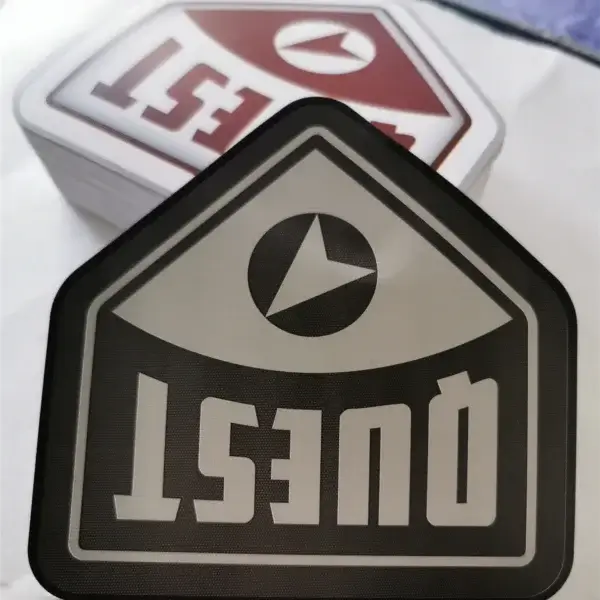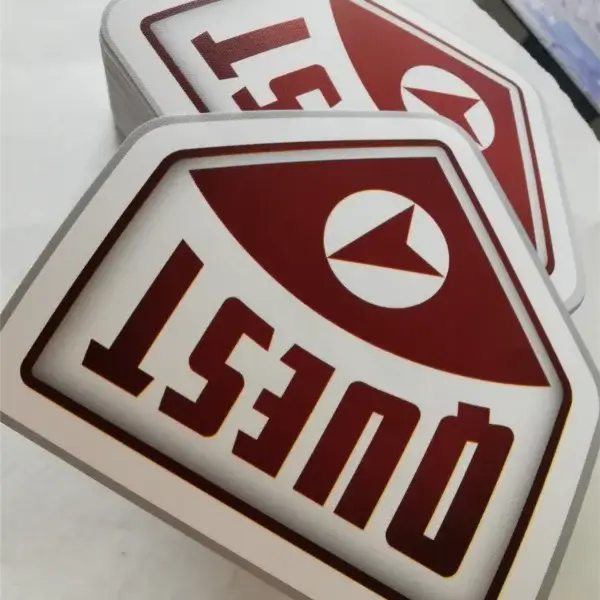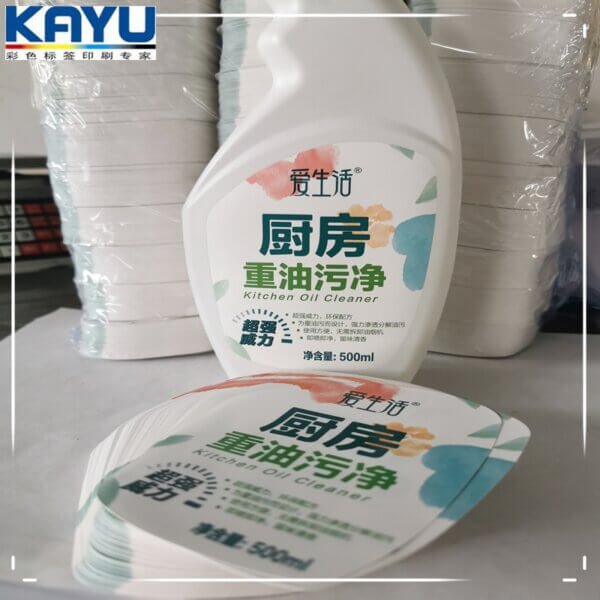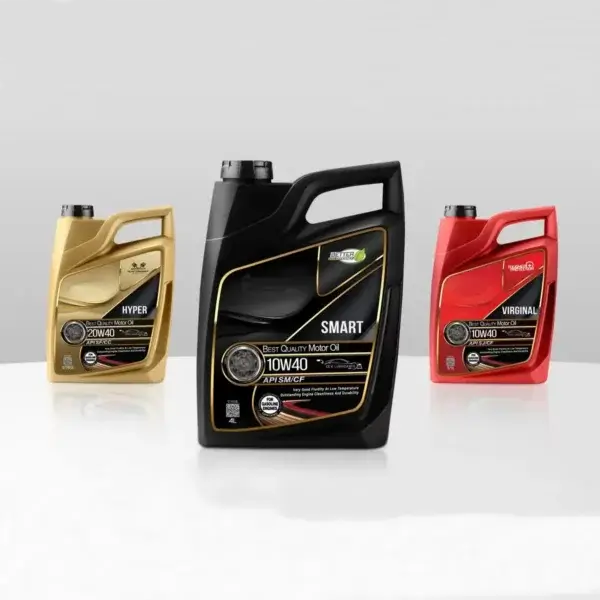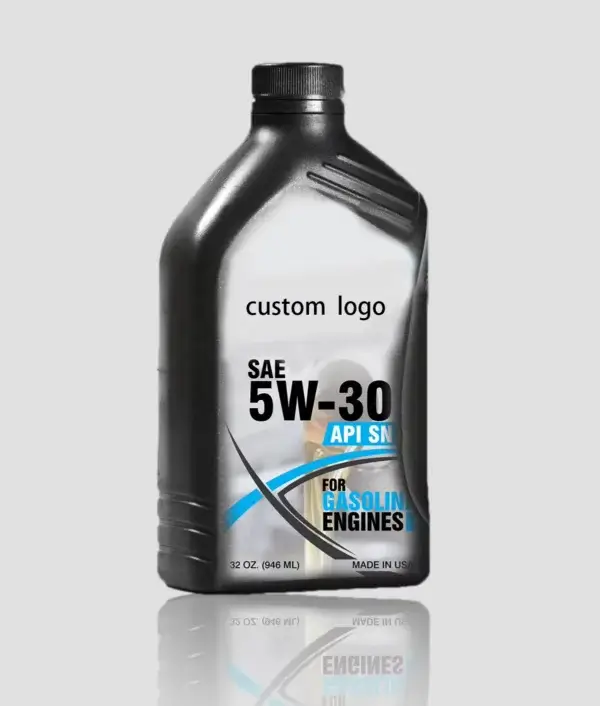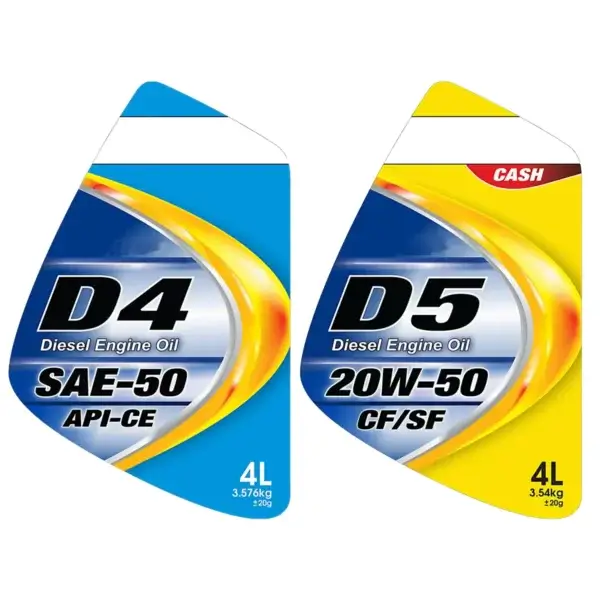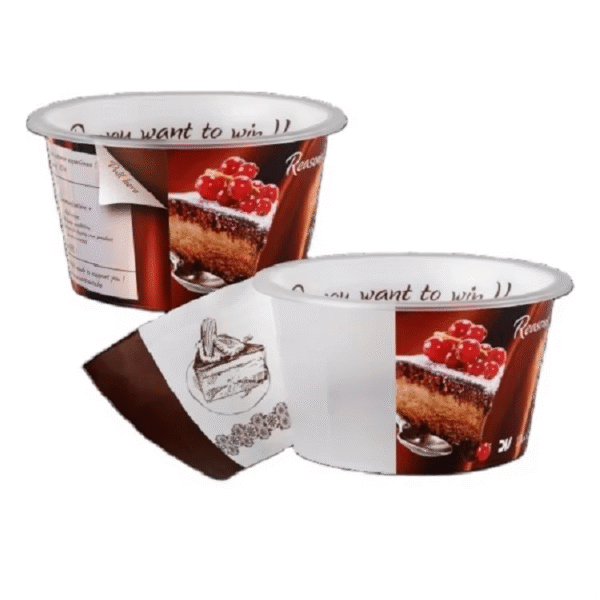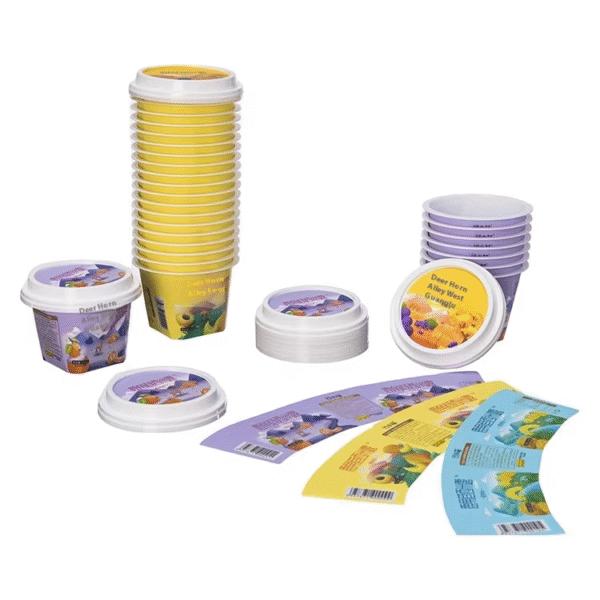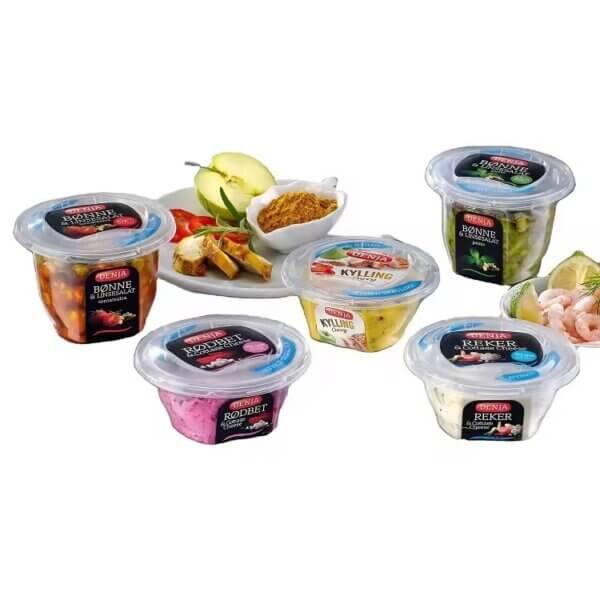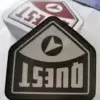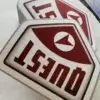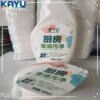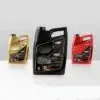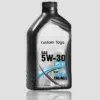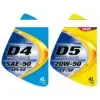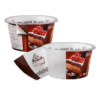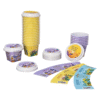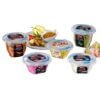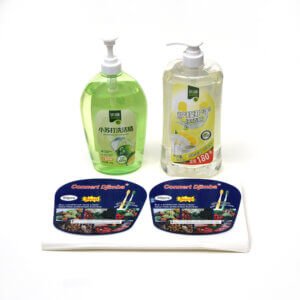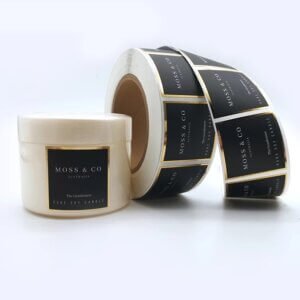Waterproof Custom PVC Labels for Diverse Applications
Introducción
In today’s competitive market, product packaging plays a critical role in brand recognition and consumer appeal. Waterproof custom PVC labels, particularly in-mold labels (IML) and vinyl stickers, have emerged as a versatile and durable solution for industries ranging from automotive to skincare, food, and cleaning agents. These labels are designed to withstand harsh environmental conditions, ensuring that branding and product information remain intact and visually appealing. This article explores the benefits, applications, and manufacturing considerations of waterproof custom PVC labels, with a focus on their use in engine oil, skincare, chemical, and food bottle labeling.
Benefits of Waterproof Custom PVC Labels
Waterproof PVC labels offer several advantages that make them ideal for demanding applications:
Durability and Weather Resistance: PVC (polyvinyl chloride) is inherently resistant to water, chemicals, and UV exposure. This ensures that labels remain legible and vibrant even when exposed to moisture, extreme temperatures, or harsh cleaning agents.
Customization and Aesthetic Appeal: Custom PVC labels can be tailored to specific designs, incorporating vibrant colors, intricate graphics, and branding elements. In-mold labeling (IML) technology ensures seamless integration with the product, creating a premium, professional look.
Adhesion and Longevity: Vinyl stickers and IML labels adhere strongly to various surfaces, including plastic, glass, and metal, without peeling or fading over time. This is particularly important for products like engine oil containers or chemical bottles that face rough handling.
Relación coste-eficacia: Despite their high durability, PVC labels are cost-effective due to their long lifespan and minimal need for replacement or maintenance.
Eco-Friendly Options: Advances in manufacturing have introduced recyclable PVC materials, aligning with sustainability goals for brands in the food and skincare industries.
Applications of Waterproof PVC Labels
1. Engine Oil Containers
Engine oil bottles are exposed to oil, grease, and extreme temperatures. Waterproof PVC labels ensure that critical information, such as viscosity grades, brand logos, and usage instructions, remain intact throughout the product’s lifecycle. In-mold labels are particularly effective for oil containers, as they become an integral part of the bottle during the molding process, resisting abrasion and chemical exposure.
2. Skincare Products
Skincare products, such as lotions, creams, and serums, are often stored in humid environments like bathrooms. Waterproof vinyl stickers and IML labels protect against water splashes and ensure that branding remains pristine. These labels also allow for high-quality printing, enabling intricate designs that appeal to beauty-conscious consumers.
3. Chemical and Cleaning Agent Bottles
Chemical products, including cleaning agents and industrial solutions, require labels that can withstand exposure to corrosive substances and frequent handling. PVC labels are resistant to acids, alkalis, and solvents, making them ideal for these applications. Custom designs also help convey safety warnings and usage instructions clearly.
4. Food Bottle Labeling
In the food industry, bottles containing sauces, oils, or beverages must comply with strict regulatory standards while maintaining visual appeal. Waterproof PVC labels are food-safe and can endure refrigeration, moisture, and handling without compromising quality. IML technology ensures labels are seamlessly integrated, reducing the risk of peeling during transport or storage.
Manufacturing Considerations
Producing high-quality waterproof PVC labels involves several key considerations:
Selección de materiales: PVC is chosen for its flexibility, durability, and resistance properties. Manufacturers may also use specialized coatings to enhance UV resistance or add a glossy finish.
In-Mold Labeling Process: For IML, labels are placed inside the mold during the production of the container, fusing them with the product. This requires precision to ensure proper alignment and adhesion.
Printing Techniques: Advanced printing methods, such as flexography or digital printing, are used to achieve vibrant colors and fine details. UV-resistant inks are critical for outdoor or chemical applications.
Cumplimiento de la normativa: Labels for food and skincare products must meet safety standards, such as FDA or EU regulations, ensuring they are non-toxic and safe for consumer use.
Sustainability: Manufacturers are increasingly adopting eco-friendly PVC or biodegradable alternatives to meet environmental demands.
Conclusión
Impermeable custom PVC labels, including IML and vinyl stickers, are a game-changer for industries requiring durable, high-quality labeling solutions. Their ability to withstand harsh conditions while offering customization makes them ideal for engine oil, skincare, chemical, and food bottle applications. As brands continue to prioritize durability, aesthetics, and sustainability, the demand for these versatile labels is set to grow. By investing in high-quality PVC labels, businesses can enhance their product presentation, ensure compliance, and build lasting consumer trust.

